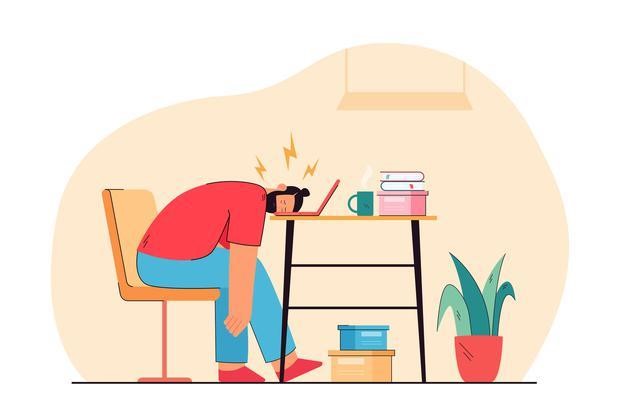10 Effective Stress Management Activities For Students

Are you a student stressed about starting the new semester? Or stressed about the internship you’ve worked hard for? Or about moving to a different city to start a new life?
Students, more than anyone, are common victims of stress and anxiety. Family expectations, financial independence, deadlines, exam stress, and too many assignment workloads can all induce stress. And while stress, in smaller amounts, can be motivating and invigorating, too much stress can leave you feeling overwhelmed and burnout.
If not managed in time, stress can develop into serious mental health problems such as anxiety and depression. In this blog, I’ll help you explore some of the effective stress management activities for college students
Let’s start with some of the common causes of stress in students.

Common Causes of Stress In Students
- Managing new relationships
- Maintaining a balanced social and academic life
- Moving out of your parents’ or living independently for the first time
- Adjusting to a new environment
- Strict or rigid school schedules
- Meeting deadlines
- Getting low grades
- Managing difficult subjects
- Exam stress
- Poor time management
- Worrying about the daily commute
- Managing part-time jobs or internships
- Financial stress
- Managing extracurricular activities
We can classify student stress into three categories:
1. Social Stress: Social stress can include stress brought on by:
2. Academic Stress: Academic stress can include stress brought on by:
3. Day-To-Day Stress: Daily stress is very different from social or academic stress and can be brought on by:
Students in high-school might face the stress of dealing with competitiveness and deciding upon their future career options. Stress in college students can be brought on as they try to navigate in a world where they have no previous experience. The worry and stress about meeting new people, getting in their desired course, or living in a dorm – all these can induce stress.
Many students try to relieve stress but between the responsibilities and schedules, it can become quite challenging.
These stress-relief activities for students are effective and can fit easily into their busy schedules.
Also Read: 4 A’s of Stress Management To Cope With Stress
10 Best Stress Management Activities For Students
1. Getting Enough Rest

Don’t neglect sleep – you need it. Students are one of the most notorious beings when it comes to getting sleep. Being sleep-deprived can make you feel less productive and can make it difficult for you to concentrate. To stay away from stress, it is important to get enough sleep and rest between classes. Getting at least 6-8 hours of sleep can help you stay relaxed, refreshed, and energized to tackle another day.
Also Read: Sleep and Mental health | Are They Related?
2. Practicing Visualization
Visualization or guided imagery can help you reduce stress quite easily and effectively. Visualization can help you distract yourself from your stressor and shut off your stress response. You can also use visualization to prepare yourself for your presentations and scoring a high grade.
Also Read: Visualization Meditation To Calm Your Mind: Techniques & Benefits
3. Exercising Regularly

Stress can make you wound up tight until you snap. One of the most effective ways to relieve stress is to exercise regularly and let off steam. You can try practicing yoga in the morning, walking to and from campus, cycle to and from campus, or run. Exercising also helps release endorphins that can help you feel relaxed. Regular exercise is important and can steadily improve your quality of life.
Also Read: Top 10 Mental Benefits of Exercise
4. Practicing Breathing Exercises

When our body is responding to stress, our body engages in a fight-or-flight response. Engaging in this response can speed up our heart rate which can affect our breathing and thinking abilities. The quickest and easiest way to calm down in such a stressful situation is to practice breathing exercises. Breathing exercises help you relieve stress in minutes and can help you bring your heart rate to a normal level.
Also Read: Benefits of Deep Breathing On Your Physical and Mental Health
5. Practicing Progressive Muscle Relaxation
Progressive muscle relaxation is a great stress reliever and can be used in bed, during exams, or during other stressful situations. This technique involves tensing and relaxing your muscles until your body is relaxed. With regular practice, you can learn to relieve stress in a matter of minutes. This is highly recommended for students as this technique can help in better sleep and promote instant relaxation.
Also Read: 11 Breathing Exercises To Help With Better Sleep
6. Listening To Music

Music is one of the amazing stress-busting techniques. Not only listening to music helps in improving your concentration skills and promoting relaxation, but it can also help in stimulating your mind and relieve stress. If you’re a stressed student then you can reap the benefits of music. If you’re studying, you can play classical or calm music, if you need a motivating start to your day, you can play some upbeat music, or if you just want to relax, you can play some slow tunes to match your mood.
Also Read: Music Meditation: How To Meditate With Music
7. Learning To De-clutter
Stressful students often neglect to take care of their space. Cluttered space can often contribute to your stress and decrease your productivity. Many students live in a disorganized space and it can affect their grades and performance at school. The best way to reduce stress is to maintain a clean and decluttered living environment.
Having a decluttered space can lower your stress, soothe your nerves, and help you stay motivated.
Also Read: Organized Home Organized Mind: Tips For Stress Relief
8. Eating Healthily

Having a healthy diet is important to keep your stress at bay. Your food and drinking choices can either boost your energy or it can leave you feeling drained. Maintaining a healthy and well-balanced diet is not only good for your physical health but can also help you manage your mood swings, anxiety, light-headedness, etc.
Also Read: 14 Best Foods That Help To Reduce Anxiety
9. Taking One Step At A Time

Most stressful students try to finish too many tasks at once to reach deadlines but doing this can leave you feeling overwhelmed. Instead of doing too many things at once, try to take things one step at a time. Make a list of your priorities and sort them out one by one. Don’t tackle more than one task at a time. This will also help you increase your productivity and help you stay focused.
10. Staying Positive

Optimism and positive thinking can have a significant impact on your mental and emotional health. Thinking and staying positive by the way of self-talk or affirmations can make you feel energized and optimistic. If you get a bad grade, instead of wallowing or overthinking about it, try to keep a positive attitude and look for ways how you can improve your grade the next time.
Final Thoughts
Stress can make doing our daily tasks a little harder and challenging but if you know how to manage your stress effectively, you can do so much better in life. If you’re feeling stressed or burnout, try the above tips and techniques.
Try not to do or take on too much at a time. If possible, take a break and do something you love. Keep your workload to a minimum and maintain a balanced social and academic life. If you’re still having trouble with managing your stress, you can reach out to a professional therapist or a counselor.
Also Read: Top 10 Online Therapy and Counseling Programs 2021
For more information on effective stress management techniques for college students, you can contact us at info@calmsage.com or connect with us on our social media pages.




















